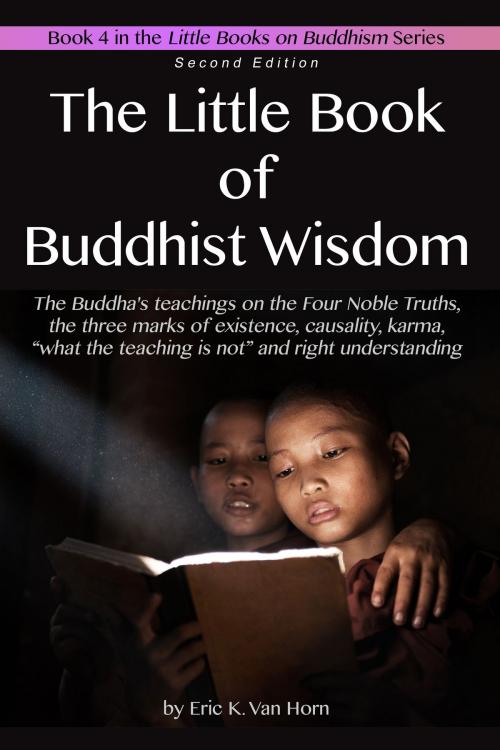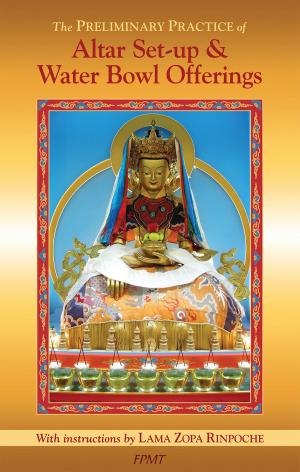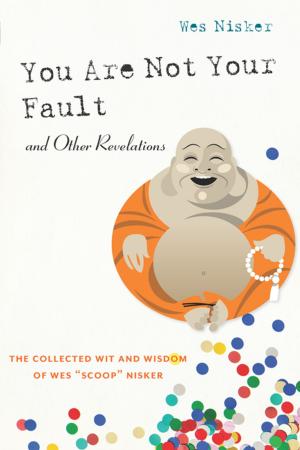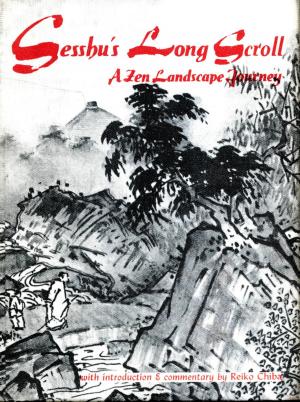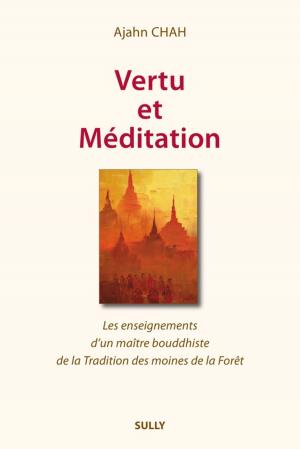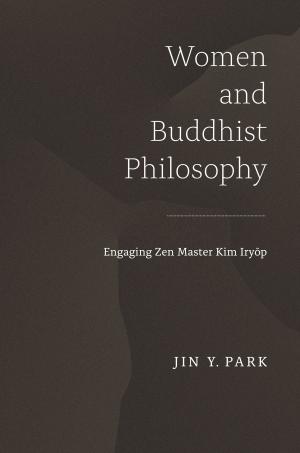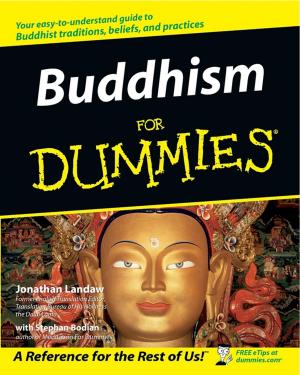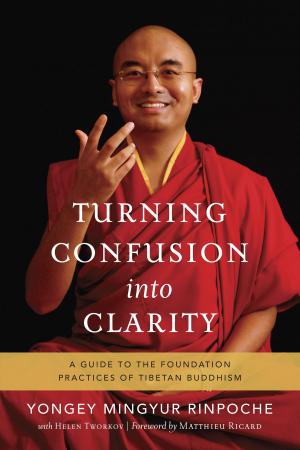| Author: | Eric Van Horn | ISBN: | 9781310356759 |
| Publisher: | Eric Van Horn | Publication: | July 15, 2016 |
| Imprint: | Smashwords Edition | Language: | English |
| Author: | Eric Van Horn |
| ISBN: | 9781310356759 |
| Publisher: | Eric Van Horn |
| Publication: | July 15, 2016 |
| Imprint: | Smashwords Edition |
| Language: | English |
There are many aspects of Buddhism found in most religions. These include ethics and morality, altruism and iconic stories of inspirational people. But The Little Book of Buddhist Wisdom looks at what makes Buddhism unique.
This begins with the most central teaching of Buddhism, The Four Noble Truths. The Four Noble Truths identify our fundamental problem of life and its cause. But more importantly The Four Noble Truths provide the antidote as well, the course of training that leads to greater skill and greater happiness. This path culminates in final release and transcendent knowing.
The law of karma states that our actions have consequences. We are not victims of determinism, random chaos or an external authority. While the law of karma allows for circumstances outside of our control, it focuses us on what we can control. Our destinies are in our hands.
The most complex and subtle of the Buddha’s teachings is that on causation. The teachings on causation describe a universe of every-flowing causes and results, an ocean of experience that changes from moment-to-moment. This is good news because it is the causal nature of life that is the foundation for our ability to evolve, change, become more skilled, and happier.
Buddhism has long recognized that there are Three Characteristics of conditioned experience: dukkha (stress, or suffering), impermanence (inconstant and unreliable) and non-self. Most of the difficulty we have in life is because we identify with ever-changing phenomena. To become free from this stress we must release these attachments. This is the way to harmony with life and the universe.
The Little Book of Buddhist Wisdom also looks at two important discourses, one that describes What the Teaching is Not, and one that describes the first step in the Noble Eightfold Path, right view. And finally, there are brief discussions of common Buddhist topics like emptiness, non-duality, Buddha nature, and interconnectedness.
There are many aspects of Buddhism found in most religions. These include ethics and morality, altruism and iconic stories of inspirational people. But The Little Book of Buddhist Wisdom looks at what makes Buddhism unique.
This begins with the most central teaching of Buddhism, The Four Noble Truths. The Four Noble Truths identify our fundamental problem of life and its cause. But more importantly The Four Noble Truths provide the antidote as well, the course of training that leads to greater skill and greater happiness. This path culminates in final release and transcendent knowing.
The law of karma states that our actions have consequences. We are not victims of determinism, random chaos or an external authority. While the law of karma allows for circumstances outside of our control, it focuses us on what we can control. Our destinies are in our hands.
The most complex and subtle of the Buddha’s teachings is that on causation. The teachings on causation describe a universe of every-flowing causes and results, an ocean of experience that changes from moment-to-moment. This is good news because it is the causal nature of life that is the foundation for our ability to evolve, change, become more skilled, and happier.
Buddhism has long recognized that there are Three Characteristics of conditioned experience: dukkha (stress, or suffering), impermanence (inconstant and unreliable) and non-self. Most of the difficulty we have in life is because we identify with ever-changing phenomena. To become free from this stress we must release these attachments. This is the way to harmony with life and the universe.
The Little Book of Buddhist Wisdom also looks at two important discourses, one that describes What the Teaching is Not, and one that describes the first step in the Noble Eightfold Path, right view. And finally, there are brief discussions of common Buddhist topics like emptiness, non-duality, Buddha nature, and interconnectedness.
